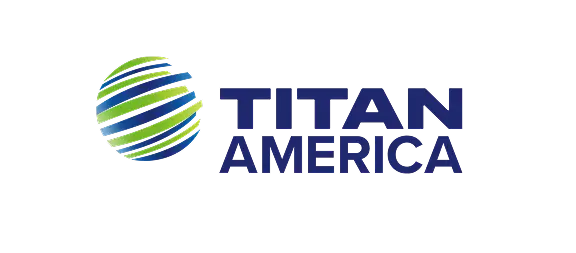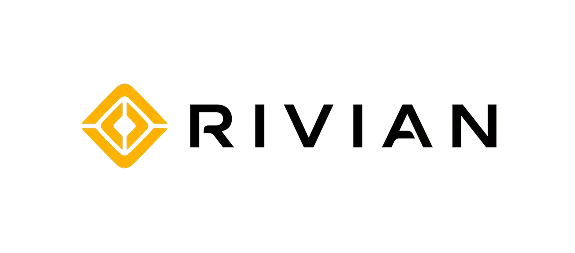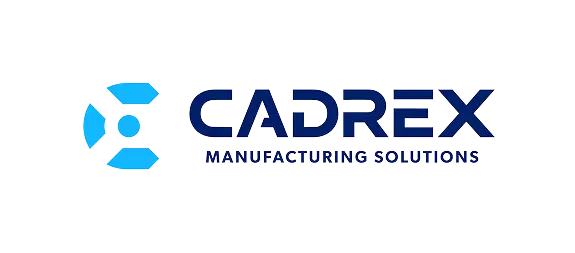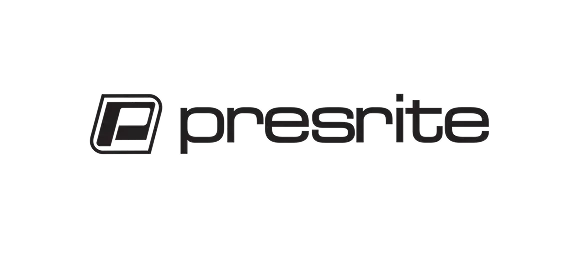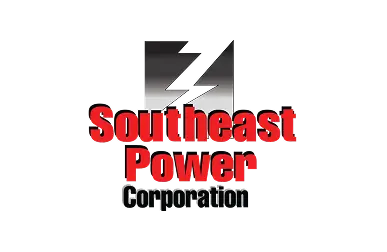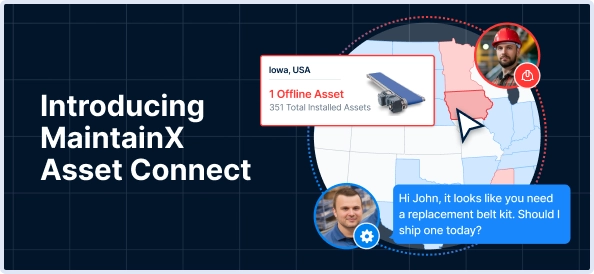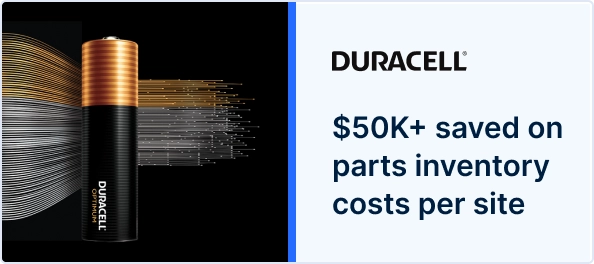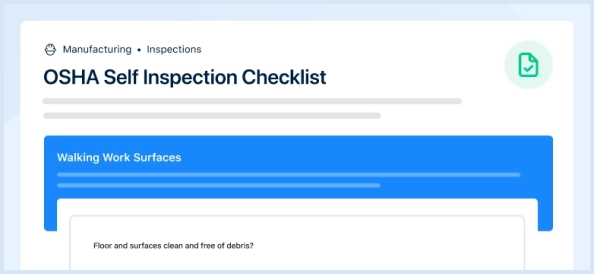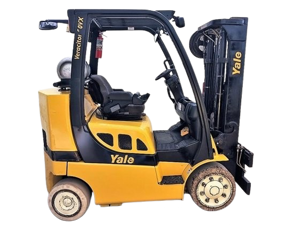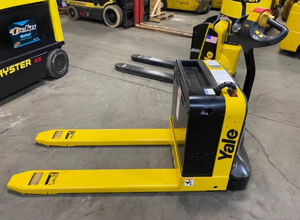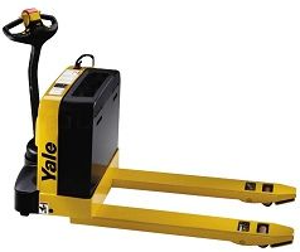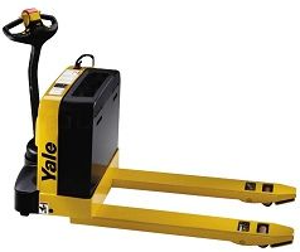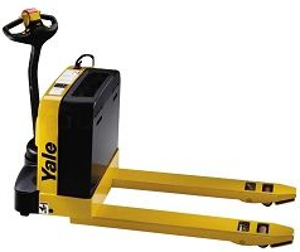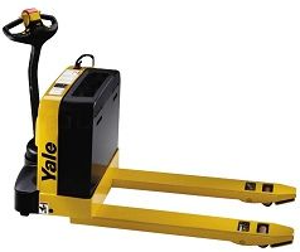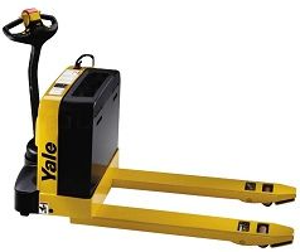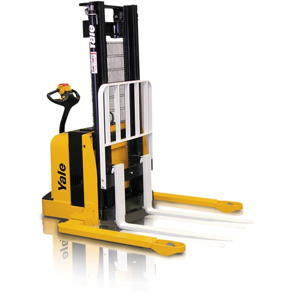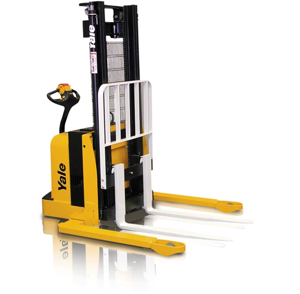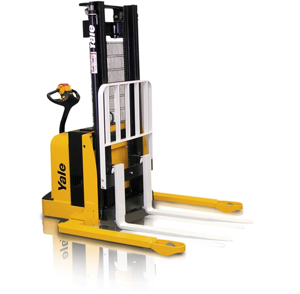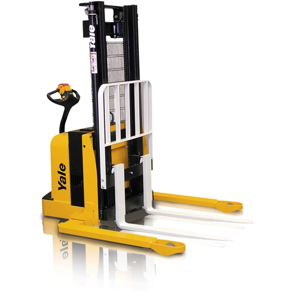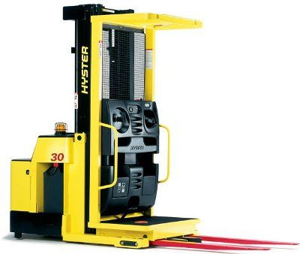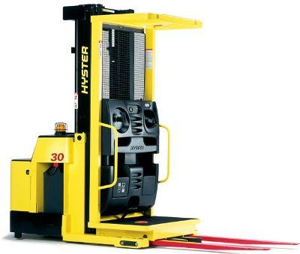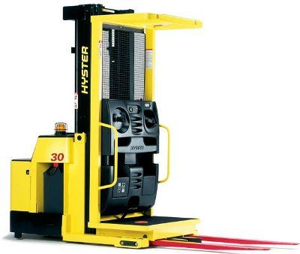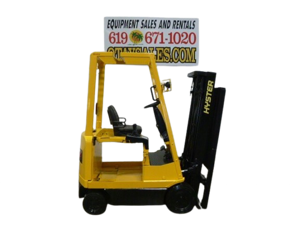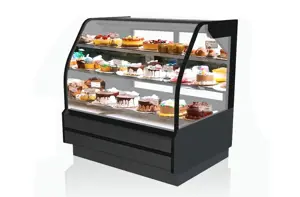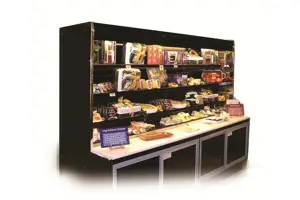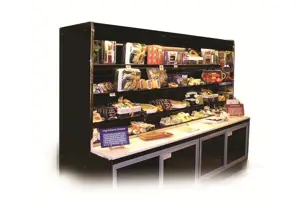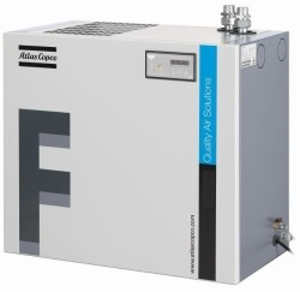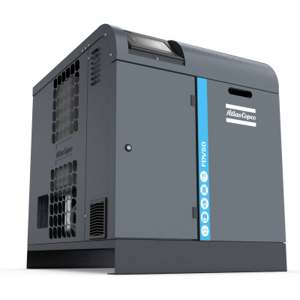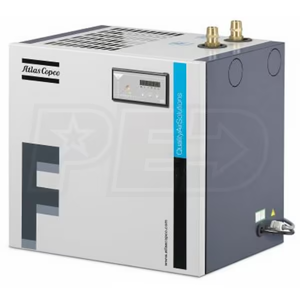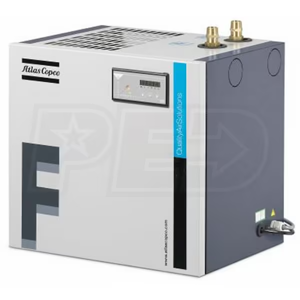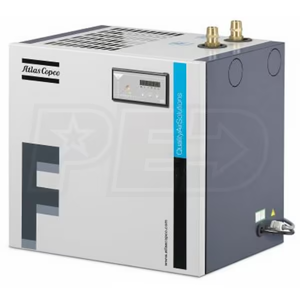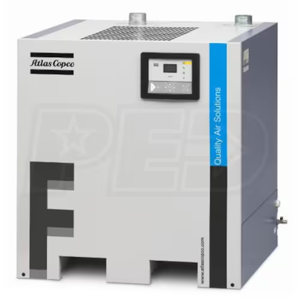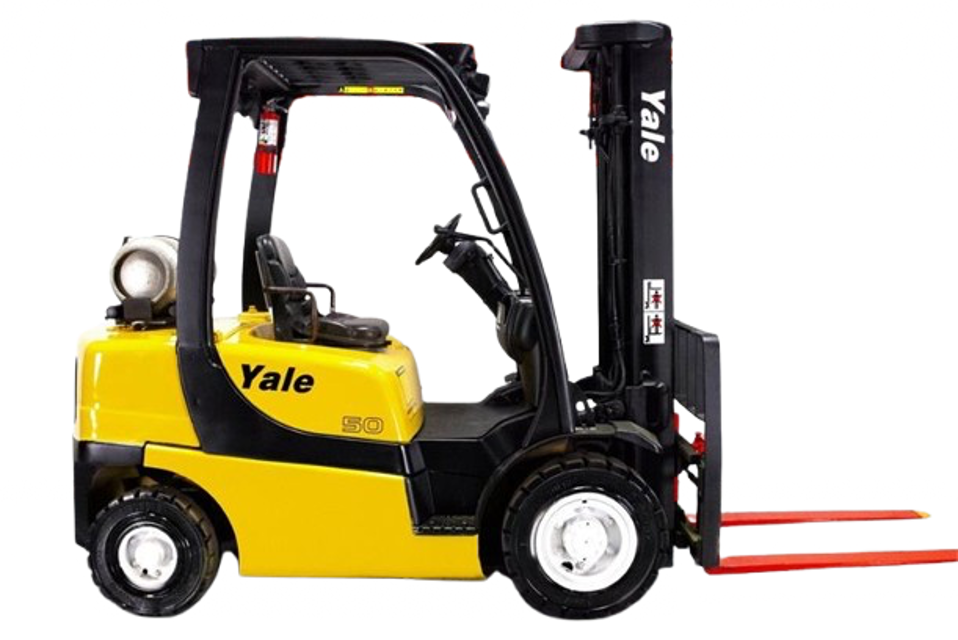

The Hyster-Yale Lift Truck GLP050VXEUSE090 is a reliable internal combustion forklift designed for efficient material handling in industrial environments. Known for its robust performance and durability, this model is ideal for various applications, ensuring optimal productivity and safety on the job site.
Turn manuals into instant answers
with your AI-powered assistantTurn manuals into instant answers
with your AI-powered assistant
Manual for Hyster-Yale Lift Truck GLP050VXEUSE090
Complete asset maintenance, one click away
Get instant access to all the maintenance information you need. Empower technicians to perform preventive maintenance with asset packages, ready to use right out of the box.
Documents & Manuals
Find all the essential guides in one place.
Tensioning Guide
Belt-diagram
C-120 pulleys
+ 13 more
Work Order Templates
Pre-built workflows to keep your asset running smoothly.
Daily Electrical System Inspection
Replace Roller and Pulley
Install Engine B-120
+ 29 more
Procedures
Integrate maintenance plans directly into your work orders.
Motion Industries
Applied Industrial Technologies
Electrical Brothers
+ 5 more
Parts
Access the parts list for your equipment in MaintainX.
Drive Motor
B2 Rollers
Tensioning System
+ 40 more

Hyster-Yale Lift Truck GLP050VXEUSE090
Create an account to install this asset package.
Maintenance Plans for Hyster-Yale Lift Truck Model GLP050VXEUSE090
Integrate maintenance plans directly into your work orders in MaintainX.
Overhead Guard Replacement
WARNING! DO NOT operate the lift truck without the overhead guard correctly fastened to the lift truck
WARNING! DO NOT weld mounts for lights or accessories to legs of the overhead guard. Changes that are made by welding, or by drilling holes that are too big or in the wrong location, can reduce the strength of the overhead guard
See your dealer for Yale lift trucks BEFORE performing any changes to the overhead guard
NOTE: The lift trucks covered in this YRM are equipped with either a high or low overhead guard. The removal and installation procedures for both types of overhead guards are the same
No welding or drilling on legs of overhead guard is permitted as per previous WARNING
NOTE: The lifting device can be connected to any number of positions on the overhead guard depending upon the lifting device available. The ideal choices are a four point sling connected to all four corners on the top of the overhead guard, or a two point sling connected to two opposite corners of the overhead guard
If a single point hoist is used, make sure that the lift point is as close to the center of the overhead guard. If during the initial start of the lift the overhead guard is off balance lower immediately and move the hoist to a more centered point
Connect a lifting device to remove or install the overhead guard
Loosen clamp and disconnect the air intake hose from the elbow
Steering Column Cleaning
WARNING! Cleaning solvents can be flammable and toxic and can cause skin irritation. When using cleaning solvents, always follow the solvent manufacturer's recommended safety precautions
WARNING! Compressed air is used for cleaning and drying purposes, or for cleaning restrictions. Wear protective clothing (goggles/shields, gloves, etc.). Make sure the path of the compressed air is away from all personnel to avoid injury
Clean metal parts in solvent. Remove all traces of old lubricant and dirt.
Clean nonmetal parts with warm soapy water and a lint free cloth
After cleaning, dry parts with compressed air. DO NOT dry parts with a cloth.
Sign off on the cleaning procedure
Transmission Replacement
WARNING! The lift truck must be put on blocks for some types of maintenance and repairs.
Before removing the mast and drive axle, put blocks under the counterweight so the lift truck cannot fall backward
Before removing the counterweight, put blocks under the mast assembly so the lift truck cannot fall forward
Remove engine from lift truck
Remove the seal plate for the brake and throttle pedals
Disconnect the engine wiring harness from transmission wiring harness
Disconnect transmission cooling lines
Remove the hydraulic hose between the hydraulic pump and the tank. Put a cap on the tank fitting. Remove the supply line from hydraulic pump to the main control valve
Remove the hydraulic supply (suction) hose between the variable displacement pump and hydraulic tank. Put a cap on the hydraulic tank fitting
Steering Column Inspection
Inspect for loose, burned, missing, cracked or damaged hardware
Inspect all parts for dents, holes, bends, burrs, rust, corrosion or marred finishes
Replace all defective or damaged parts
Sign off on the steering column inspection
Throttle Pedal and Cable Adjustment
NOTE: There are no throttle pedal and cable adjustments for lift trucks equipped with the GM 2.4L engine. The GM 2.4L engines have an electronic throttle that is self-adjusting and self-calibrating
NOTE: For the Mazda 2007 emission compliant engines and for lift trucks built after January, 2010 and equipped with a Mazda engine, there is only a throttle pedal stop adjustment. The engine has an electronic throttle that is self-adjusting and self calibrating
Remove floor plate and disconnect throttle cable from the bellcrank and engine
Fully depress throttle pedal and verify that the dimension between the bellcrank and cowl plate is 6≤2 mm (0.24 ≤0.08 in.)
If dimension is not correct, adjust ball ends on push rod so that a minimum of 6 mm (0.24 in.) of threaded rod screws into each ball end
Connect throttle cable to bellcrank and engine
With throttle pedal in full up position, adjust throttle cable, using the jam nuts (item #10 in Figure 38) to remove all slack from the cable. Cable should be adjusted to the point where additional adjustment will pull the throttle crank off the idle stop. Tighten jam nuts to 8 to 15 Nem (71 to 133 ibf in)
NOTE: If lift truck is equipped with a Electronic Control Transmission, see the section Calibration Procedures 8000 YRM 1134 for additional adjustment procedures before going onto Step 7
Fully depress pedal and verify that full pedal stroke brings the throttle crank to within 3.0 mm (0.12 in.) of the wide open throttle stop
Parts for Hyster-Yale Lift Truck GLP050VXEUSE090
Access the parts list for your equipment in MaintainX.
Operator's Cab
524306203
GM 2.4L Engine Repair
524223755
Gasoline Fuel System GM 2.4L Engine
524223760
User Interface
524223771
Electrical System Mazda 2.0L and 2.2L 2007 Emission Compliant Engines
524223775
Operator's Cab
524306203
GM 2.4L Engine Repair
524223755
Gasoline Fuel System GM 2.4L Engine
524223760
User Interface
524223771
Electrical System Mazda 2.0L and 2.2L 2007 Emission Compliant Engines
524223775
Operator's Cab
524306203
GM 2.4L Engine Repair
524223755
Gasoline Fuel System GM 2.4L Engine
524223760
User Interface
524223771
Electrical System Mazda 2.0L and 2.2L 2007 Emission Compliant Engines
524223775
Unlock efficiency
with MaintainX CoPilot
MaintainX CoPilot is your expert colleague, on call 24/7, helping your team find the answers they need to keep equipment running.
Reduce Unplanned Downtime
Ensure your team follows consistent procedures to minimize equipment failures and costly delays.
Maximize Asset Availability
Keep your assets running longer and more reliably, with standardized maintenance workflows from OEM manuals.
Lower Maintenance Costs
Turn any technician into an expert to streamline operations, maintain more assets, and reduce overall costs.
Thousands of companies manage their assets with MaintainX
